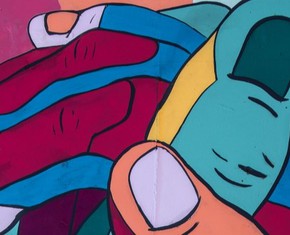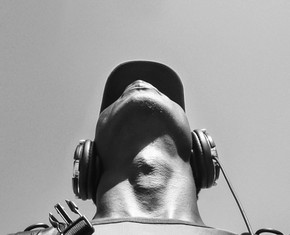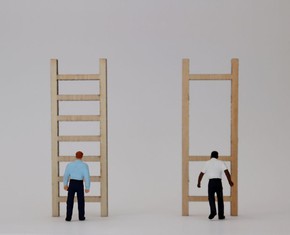The views expressed in our content reflect individual perspectives and do not represent the authoritative views of the Baha'i Faith.
We tend to think of racial prejudice and animosity as purely social deficiencies—but they indicate a serious spiritual deficiency, too.
This statement might seem controversial to some, but many of us feel it and live it. The oppression built into our social reality has a deep impact on who we are. Our access to resources like stable education, quality and sensitive healthcare, clean water and nutritious food are all deeply shaped by racism.
But what about things that blur the line between who we are socially and who we are at our core, or in our soul? The spiritual components of who we are, like our attitudes on love, generosity and trust, or our tendency to be inclusive or judgmental, are also deeply shaped by race and racism. One giant example: white supremacy directly opposes the interconnectedness of humankind.
When we start to realize that the root of racism is not only social, but that it lives in the veins and heart of our society, it becomes clear that changing policies and structures can only carry us so far. A huge amount of work on eradicating racism needs doing in organizational and systemic spaces—but we cannot neglect the spiritual crisis it represents, either.
Shoghi Effendi, the Guardian of the Baha’i Faith, outlined the change required from us to efficiently address racism:
A tremendous effort is required by both races if their outlook, their manners, and conduct are to reflect, in this darkened age, the spirit and teachings of the Faith of Baha’u’llah. Casting away once and for all the fallacious doctrine of racial superiority, with all its attendant evils, confusion, and miseries, and welcoming and encouraging the intermixture of races, and tearing down the barriers that now divide them, they should each endeavor, day and night, to fulfill their particular responsibilities in the common task which so urgently faces them. – Shoghi Effendi, The Advent of Divine Justice, pp. 39-40.
The details of how racism plays out in society certainly do matter, but racism has both physical and spiritual effects. Researchers have found persistent health disparities in marginalized communities, even when they’ve controlled for class, education, and social status, indicating that racism influences the physical health of black folks. But racist policies, attitudes and micro-aggressions also affect the less tangible parts of who we are. Aside from the socioeconomic inequality and stress racism presses on black and brown communities, racism presents white folks with obstacles for spiritual growth.
A racist society teaches people attitudes and beliefs that directly contradict becoming more empathic, just, and unity-oriented. While these obstacles can be overcome, similar to the way that some black and brown people break the status quo, it requires an effort that would not be needed if racism were ameliorated.
Abdu’l-Baha, the son of the founder of the Baha’i Faith, spoke of the spiritual purpose of our lives in these terms:
… in this world he must prepare himself for the life beyond. That which he needs in the world of the Kingdom must be obtained here. Just as he prepared himself in the world of the matrix by acquiring forces necessary in this sphere of existence, so, likewise, the indispensable forces of the divine existence must be potentially attained in this world. What is he in need of in the Kingdom which transcends the life and limitation of this mortal sphere? That world beyond is a world of sanctity and radiance; therefore, it is necessary that in this world he should acquire these divine attributes. – Abdu’l-Baha, The Promulgation of Universal Peace, p. 226.
If our society conditions entire populations, races, and classes of people to believe they are superior to others, it creates a barrier to reaching a state of holiness, love, and sanctity. Ignoring a history of violence, slavery, and the gross exploitation also prevents us from healing. Until we all acknowledge our history and lived inequality, wounds will stay open, and many of us will continue to feel stuck in the depths of anger or confusion, which keep us from developing genuine love for one another.
Of course, we can trace most social issues to some lack of understanding or acceptance of a spiritual principle. The growing gap between the rich and poor, for example, comes primarily from the spiritual sickness of greed. Sexism, xenophobia, and violent strife all relate to peoples’ inability to see how intrinsically connected we are to one another. The Baha’i teachings say:
Through our ignorance and lack of viewpoint we divide this common home, we divide the members of this family into various races, we divide religion into different sects and then with those suppositional divisions we wage war against one another; we shed one another’s blood and we pillage one another’s possessions. Is not this unpardonable ignorance? Is this not the height of injustice? Were we just and could we observe without prejudice we would realize that there are no fundamental differences. – Abdu’l-Baha, Divine Philosophy, pp. 178-179.
When it comes to the issue of race, we have a long way to go. Even if we do not benefit from a full recovery in our own lives, we have a responsibility to further the work for as long as we can.
















Comments
Sign in or create an account
Continue with Googleor